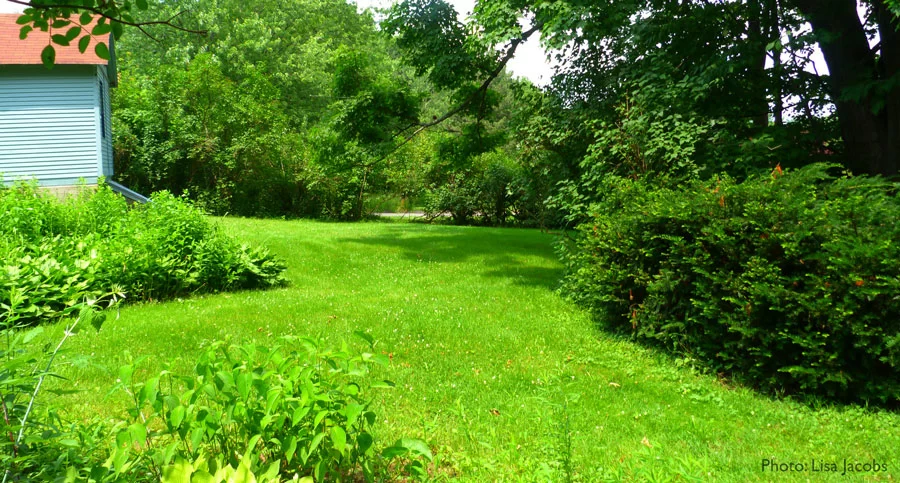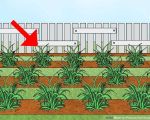
- Why You Should Avoid Pesticides on Your Lawn
- Natural Lawn Care Solutions
- How to Maintain a Pesticide-Free Lawn
- Common Challenges and Their Solutions
- Expert Advice on Lawn Care
- Additional Resources for Healthy Lawn Care
1. Why You Should Avoid Pesticides on Your Lawn
Maintaining a healthy lawn is a goal for many homeowners, but the use of chemical pesticides has raised concerns due to their environmental impact and potential harm to human health. Pesticides can kill beneficial insects, disrupt local ecosystems, and contaminate water sources. Instead of relying on these harmful chemicals, many are now turning to natural and organic lawn care methods to promote a healthier, safer environment. By avoiding pesticides, you not only protect your family and pets but also contribute to the overall well-being of the planet.
2. Natural Lawn Care Solutions
There are numerous natural lawn care solutions that can help keep your lawn vibrant and healthy without resorting to harmful pesticides. Below are some of the most effective options:
2.1 Organic Fertilizers
Organic fertilizers, made from natural ingredients like compost or manure, provide essential nutrients to your grass without introducing synthetic chemicals. These fertilizers enhance soil health, which in turn encourages stronger root systems and healthier grass.
2.2 Beneficial Insects
Incorporating beneficial insects such as ladybugs, nematodes, and predatory beetles into your lawn care routine is an excellent way to control pests naturally. These insects help regulate the population of harmful bugs like aphids and grubs, reducing the need for chemical pesticides.
2.3 Mulching and Composting
Using mulch around your lawn not only helps retain moisture but also prevents weeds from taking over. Additionally, composting enriches the soil, creating a more fertile environment for grass to thrive. Compost provides nutrients, improves soil structure, and promotes microbial activity, all of which are vital for a pesticide-free lawn.
3. How to Maintain a Pesticide-Free Lawn
Maintaining a healthy, pesticide-free lawn requires consistent care and attention. Here are some practical steps to help you manage your lawn naturally:
3.1 Regular Mowing
Keeping your grass at the right height is crucial. Mow your lawn regularly but avoid cutting it too short. Longer grass shades the soil, preventing weed growth and promoting deeper roots. A well-maintained lawn is better equipped to withstand pests and diseases naturally.
3.2 Watering Properly
Watering your lawn correctly is another key factor in maintaining a pesticide-free lawn. Deep watering encourages roots to grow deeply, which helps your lawn endure periods of drought and resist pests. Water in the early morning to minimize evaporation and fungal growth.
3.3 Aerating the Lawn
Aeration involves perforating the soil with small holes to allow air, water, and nutrients to reach the roots. This helps relieve soil compaction and promotes stronger grass growth. Aerating your lawn once a year, especially in high-traffic areas, can help maintain a healthy lawn without the need for pesticides.
4. Common Challenges and Their Solutions
Even without pesticides, lawn care can still present challenges. Here are some common issues and eco-friendly solutions:
4.1 Weeds
Weeds can be a persistent problem, but there are natural ways to deal with them. Hand-pulling, using a hoe, or applying a natural weed killer like vinegar can help control unwanted plants. Regular mowing and mulching will also prevent many weeds from taking root.
4.2 Pests
If pests like grubs or aphids are causing damage to your lawn, beneficial insects, organic insecticidal soap, or neem oil are safe alternatives to chemical treatments. These methods help control pests without harming the environment or beneficial creatures.
4.3 Lawn Diseases
Lawn diseases such as fungal infections can be managed through proper watering practices, good lawn aeration, and the use of disease-resistant grass varieties. Additionally, regularly removing dead grass and leaves helps reduce the chances of disease development.
5. Expert Advice on Lawn Care
Experts recommend focusing on building a healthy lawn ecosystem rather than relying on quick fixes like pesticides. A well-balanced lawn, rich in nutrients and maintained through natural methods, is more resistant to pests and diseases. Consulting a lawn care professional or utilizing organic lawn care services can ensure that your lawn remains healthy throughout the year, without the need for harmful chemicals.
6. Additional Resources for Healthy Lawn Care
For more tips on how to maintain a pesticide-free lawn, visit [Lawn Care Services], where you can find a range of organic products and professional services tailored to your lawn care needs. Embracing natural lawn care techniques not only enhances the beauty of your lawn but also contributes to a healthier environment for future generations.








